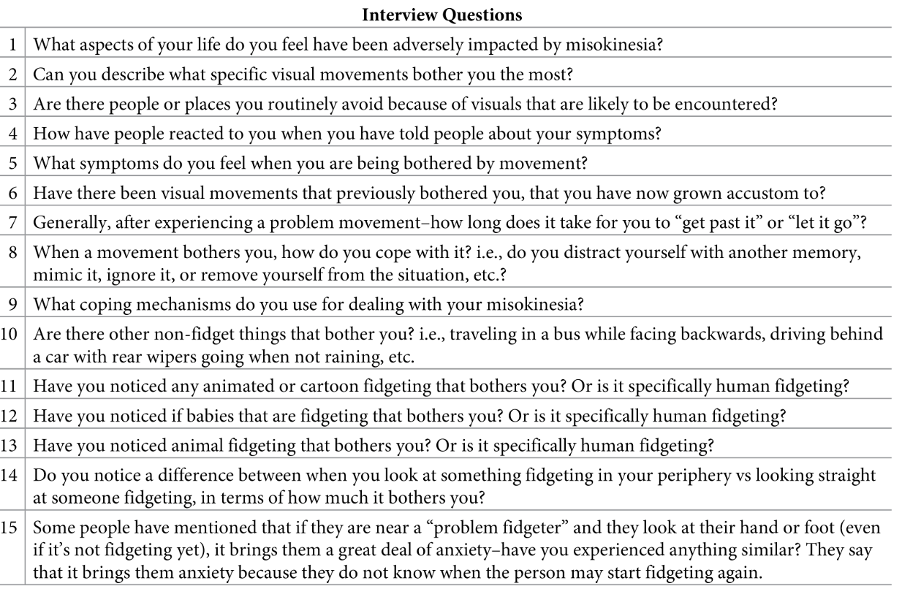Misokinesia, or the hatred of repetitive movements, produces some quite strong reactions in people.
Today the Back Page learned, from pre-eminent medical journal People, that 90s supermodel Linda Evangelista is no longer interested in dating.
It’s not just because of the “Cool-sculpting” procedures that she claimed left her disfigured. It’s because she, in a literal sense, doesn’t want to sleep with anyone, she told The Sunday Times: “I don’t want to hear somebody breathing.”
Welcome to the misophonia club, Linda. It’s nice to know we resemble a supermodel, if only in this one undesirable aspect.
First described in 2001 and permeating into the popular consciousness perhaps a decade later, misophonia was a welcome diagnosis for all the “noise haters” out there.
Getting a medical name was some small consolation for the disgust we felt during mealtimes at the office. When it’s in Greek, you know it’s legit.
(Since you asked, Linda, our greatest aversion is around someone eating an apple. From the hiss as the teeth enter, to the echoing chwock of the bitten part calving off, to the foamy mastication and gulping, all repeated an implausible number of times, it’s an auditory ordeal that creates an unsafe working environment for your correspondent.)
And now, huzzah, there’s misokinesia too.
This one’s for the folks abnormally irritated by other people’s fidgeting or movement.
This study, published in PLoS One is not the first description or coinage, but rather a qualitative study aiming to characterise the “predisposing, precipitating, perpetuating, and protecting factors” for this disorder (the 4P model).
Basing their questions on a previous misophonia study, the team asked 21 participants recruited from a Facebook misophonia and misokinesia support group, nearly all female, the following:

We are intrigued by question 11’s implication that babies are not human, but we’ll move on.
Even the way they recorded answers shows the misophonia struggle is real: “Because we were denied ethics approval to record the interview sessions, all given answers were typed … with one exception – one participant reported a high sensitivity to the sound of computer typing, and so for that participant responses were written by hand.”
If we were misophonic for typing noise we’d be in a lot of trouble.
Responses congealed around three themes: internal or cognitive/affective impacts, external or social impacts and pragmatic aspects of MKS episodes.
The authors say their findings suggest “that the mechanistic roots of [misokinesia] may not be tied to how one initially engages with an evoking stimulus, but rather, it may be linked to challenges in attentionally and/or affectively disengaging from a stimulus”.
Symptoms do not seem to attenuate or increase with age.
Most striking was the intensity of the feelings produced, including violent fantasies about the fidgeter:
- “I’m not able to focus on anything else, and my whole body feels like it’s in some sort of high alert situation. Like when you think you’re being followed by someone that might want to hurt you.”
- “I start feeling a heat rush, nervousness, shortness of breath. It’s a very visceral reaction.”
- “It feels like your mind is being tortured. It’s like an overwhelming dread, anxiety, adrenaline, disgust. It honestly feels like a new emotion that no one can possibly describe unless you deal with it yourself.”
- “I get a sudden urge to slap them or hit them to make them stop.”
- “… if I see someone tapping their fingers on a desk, my immediate thought is to chop their fingers off with a knife. This is a completely irrational response but I can’t help but experience it.”
- “When I see someone move their foot like that, I start thinking of a way to get rid of that person in a brutal way.”
- “It makes it difficult to impossible to fathom a sustainable long-term relationship. I am in my 40s and have only had 3 relationships that I consider to be long term and they were each a yearlong and long distance so I didn’t have to see the person that often.”
Note to pen twiddlers, foot tappers and the people who just won’t keep still: you may be driving someone into a homicidal frenzy. How long before they snap?
The Back Page looks forward to the naming and pathologising of aversive reactions to ever more specific things, like the sight of Gorman clothing or the sound of Jordan Peterson’s voice.
We want to collect the whole set.
Drum story tips on the table in Morse code to penny@medicalrepublic.com.au.


